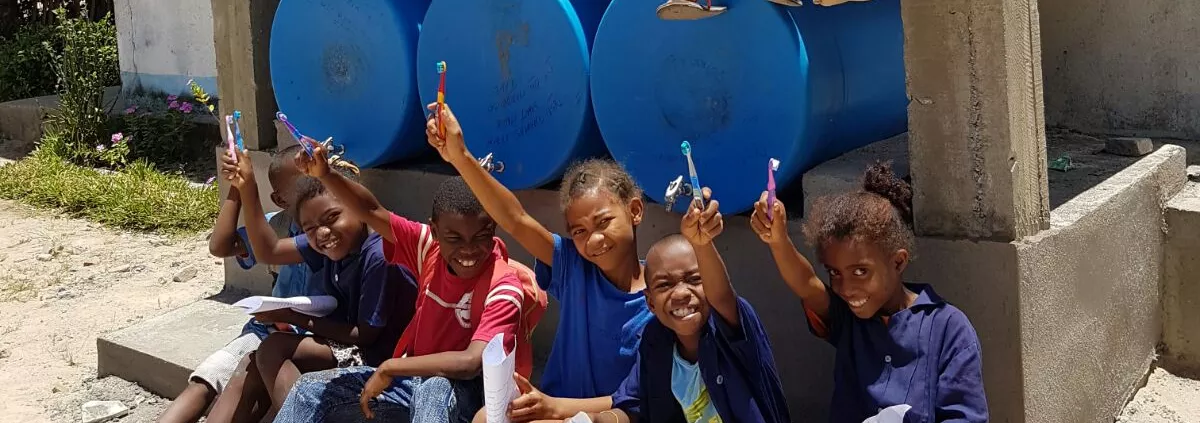ABSTRACT
Schools from Sainte-Marie Island, off the east coast of Madagascar, participated in water, sanitation, and hygiene (WASH) programs. We report an association between the program, the sustainable access to water treatment (WT) in 20 schools, and the impact on diarrhea incidence in the region. We performed a quasi-experimental longitudinal study on the program's sustainability by accessing the continuation of point-of-use (POU) water chlorination, safe water storage (SWS), and handwashing practices on the diarrhea cases of children. Patient files from 10 health centers near the schools were consulted. Sodium hypochlorite was locally produced by the students for WT and the program's sustainability was accessed between 2016 and 2021. After the intervention, 40% of water sources were entirely replaced and 60% received improvements. A student's water club, guided by teachers, was responsible for all activities related to WT. The health centers around the schools participating in the program saw diarrhea cases drop by 58% between 2018 and 2021. There appears to be an association between a decrease in diarrhea cases and the program's implementation. The strategy used can be replicated. Nevertheless, the program's success is multifactorial, depending on community engagement, adapted technology, funding, and governmental support to ensure sustainability.
Authors
Thématique(s)
Santé & hygiène
Eau & assainissement
Mots-clefs spécifiques
Mini-WATA
School
WATA
Water
Water treatment
Contenu(s) lié(s)
Pays
Madagascar


Please connexion or sign up to comment.